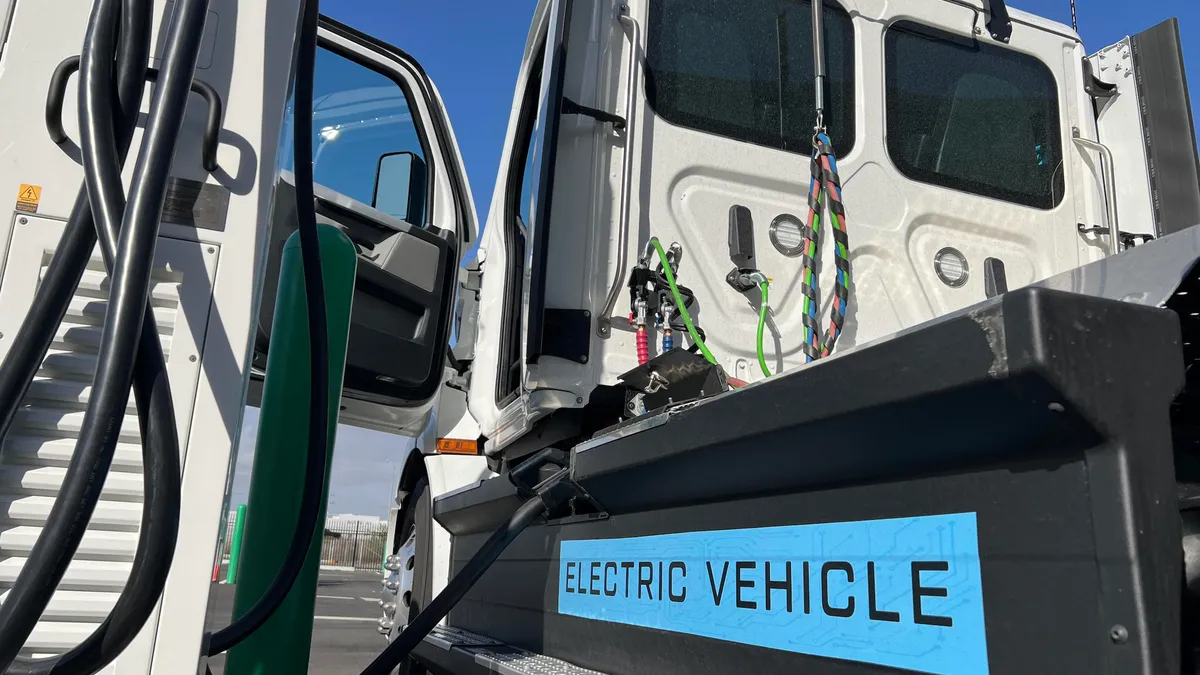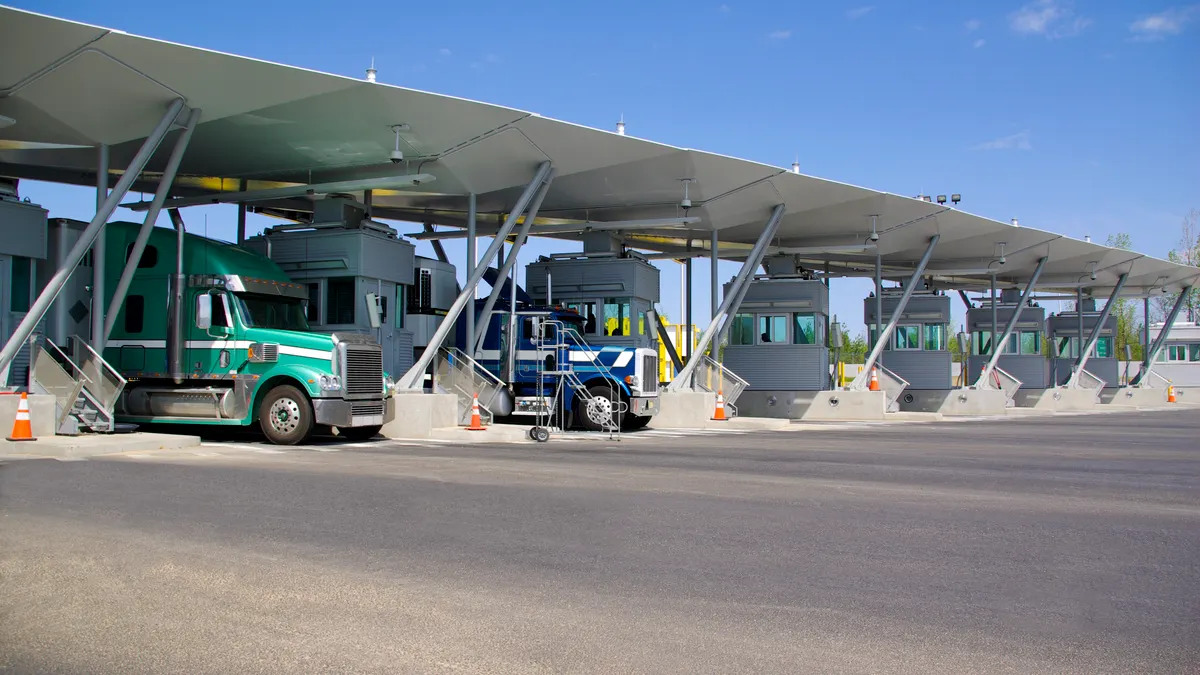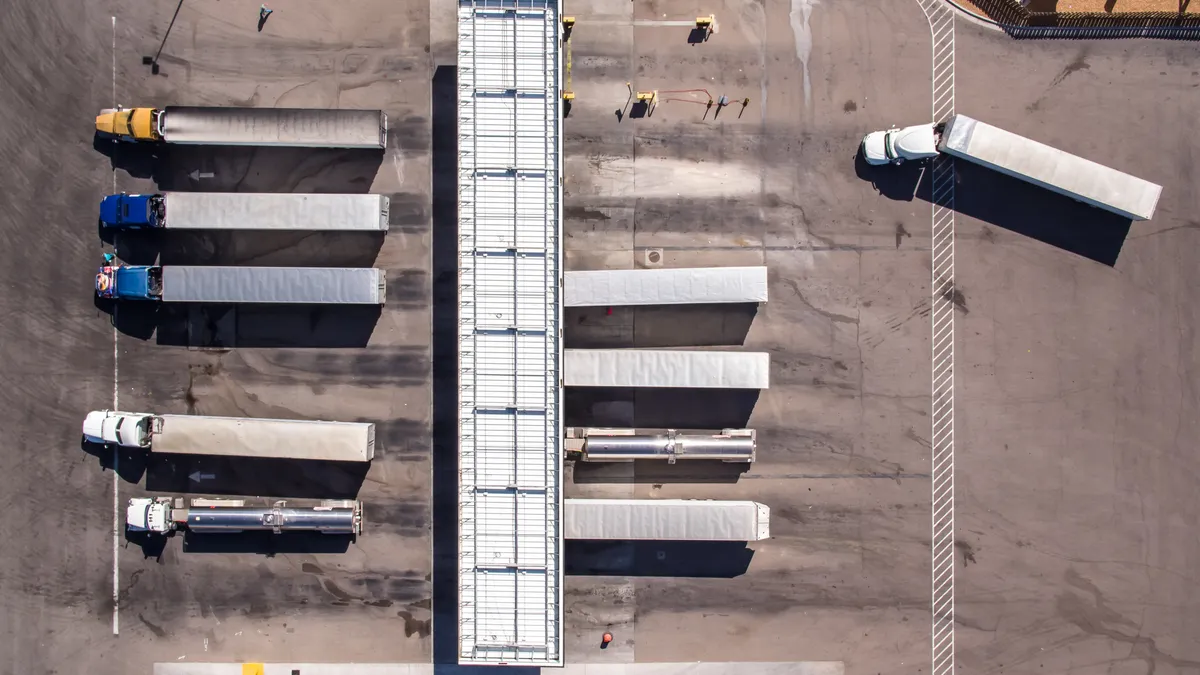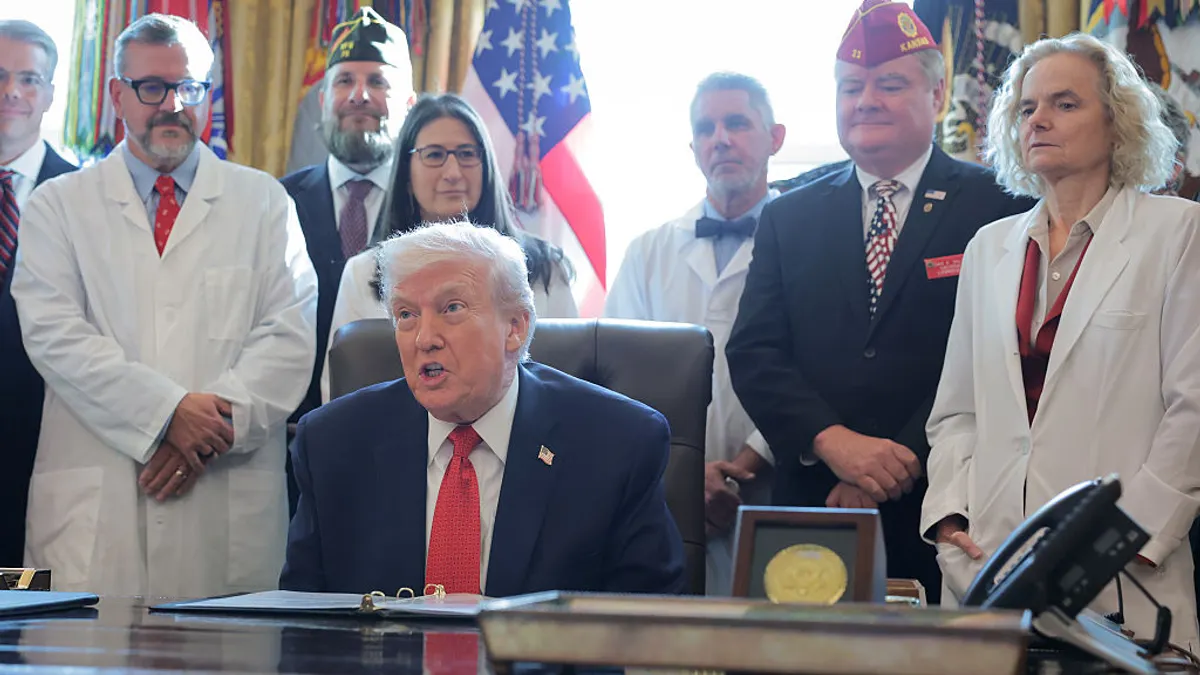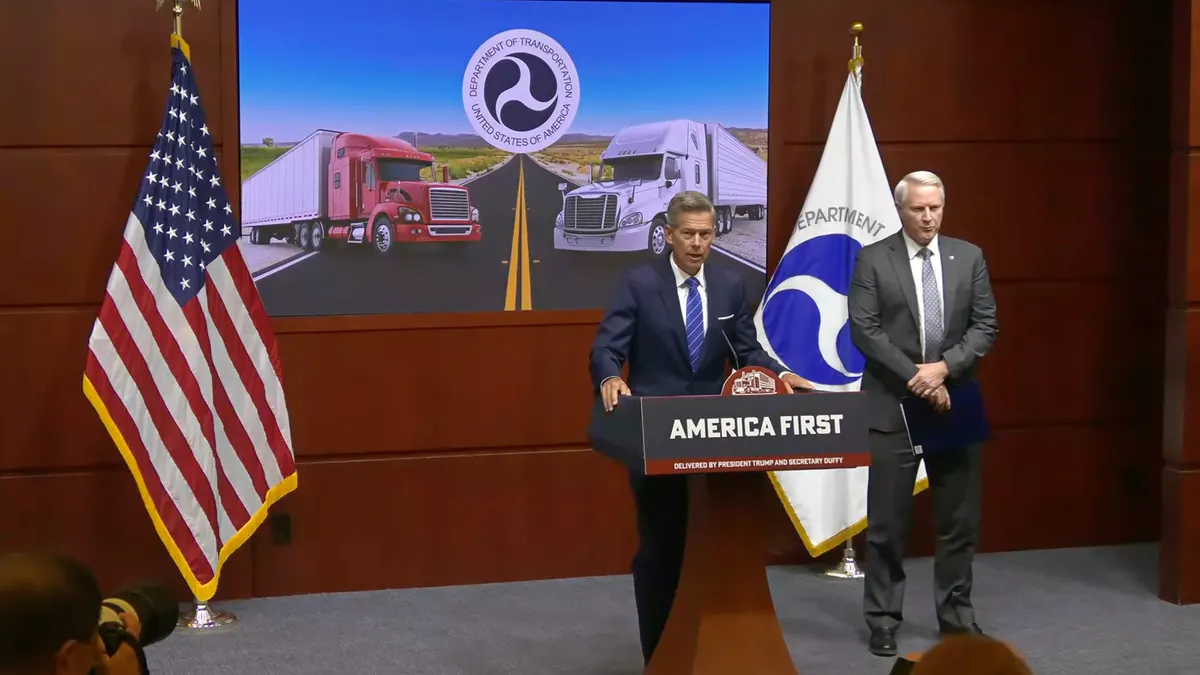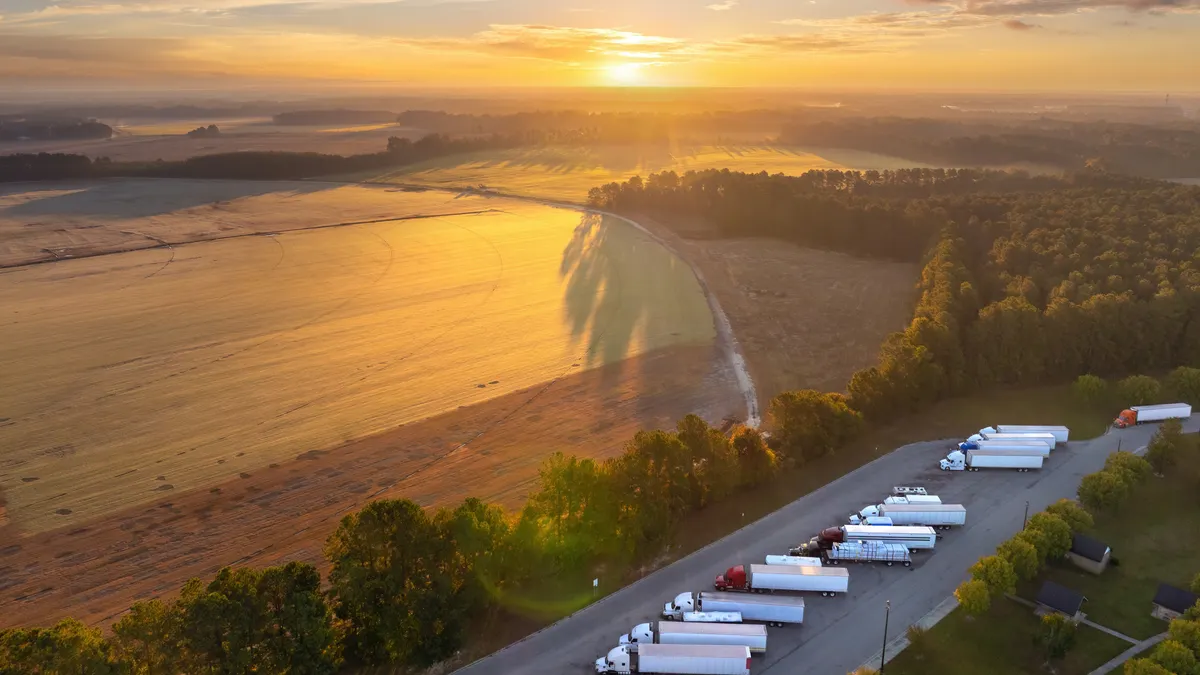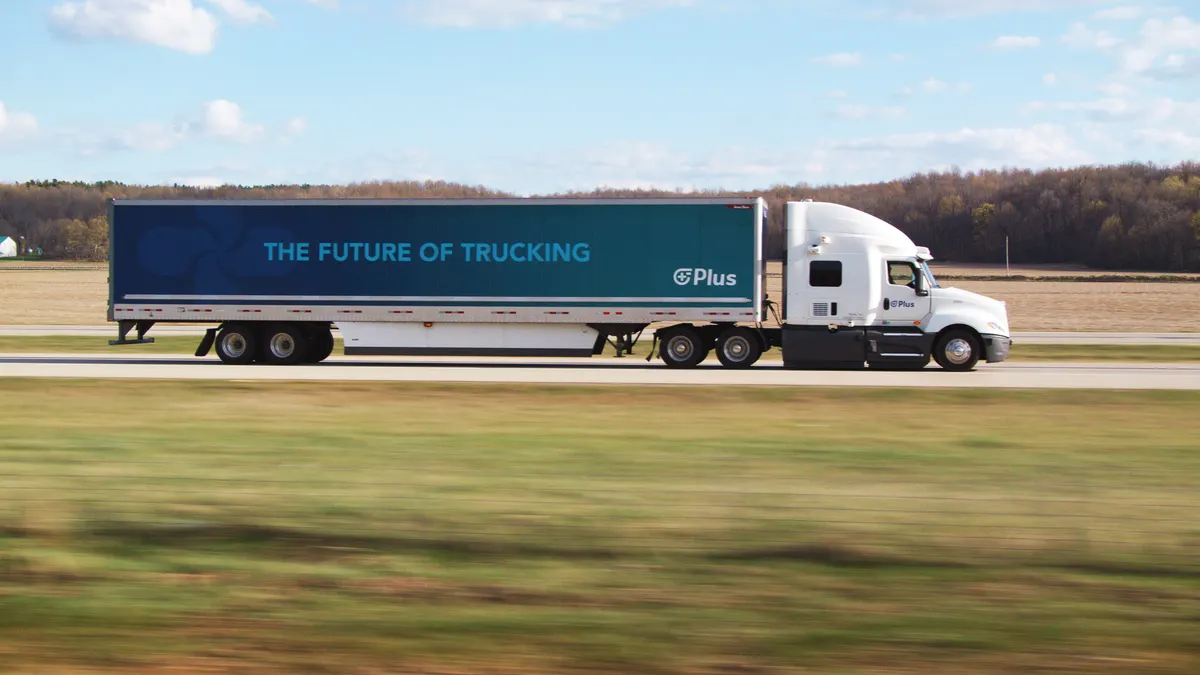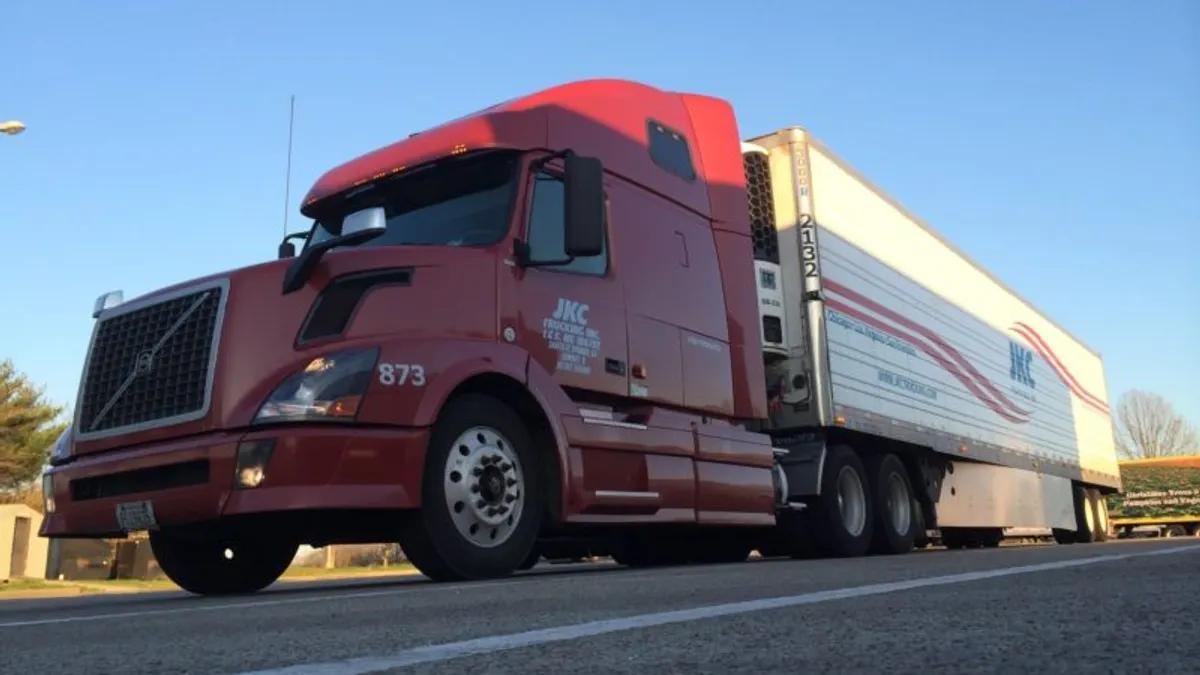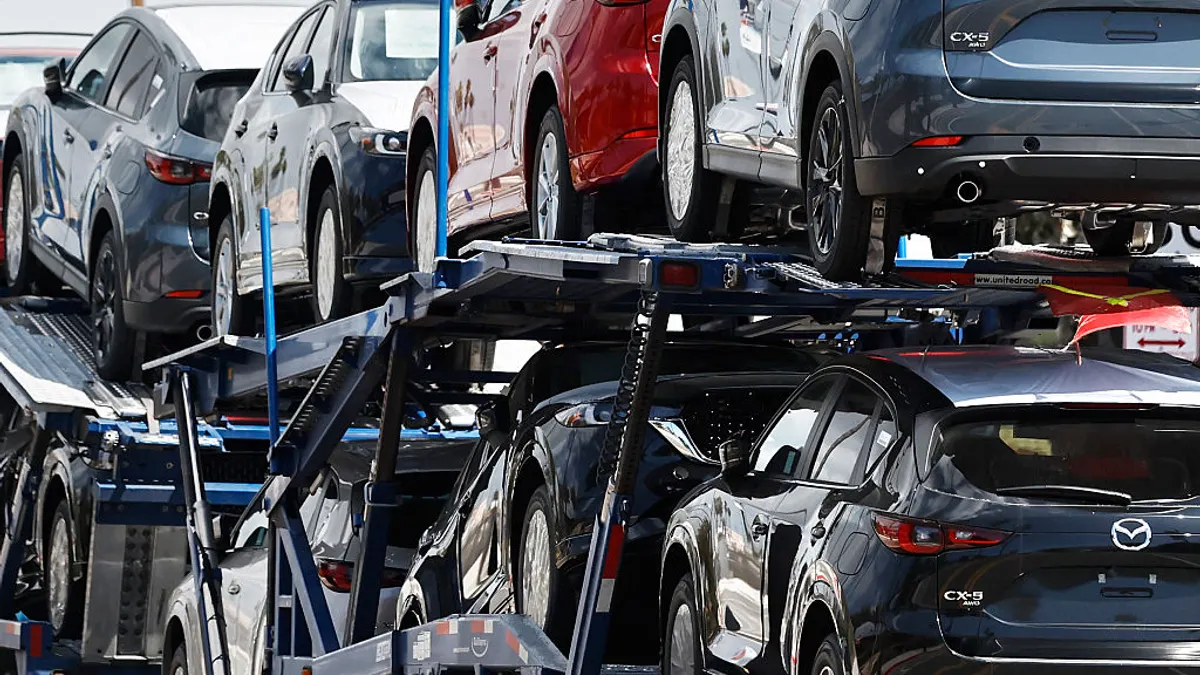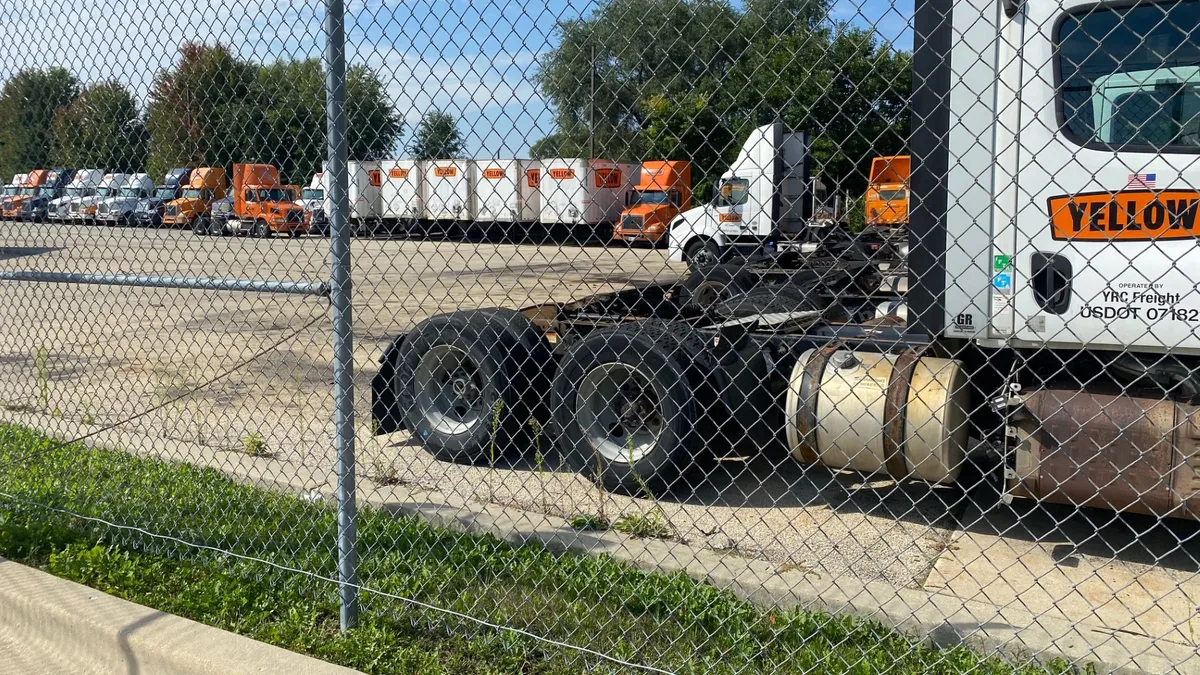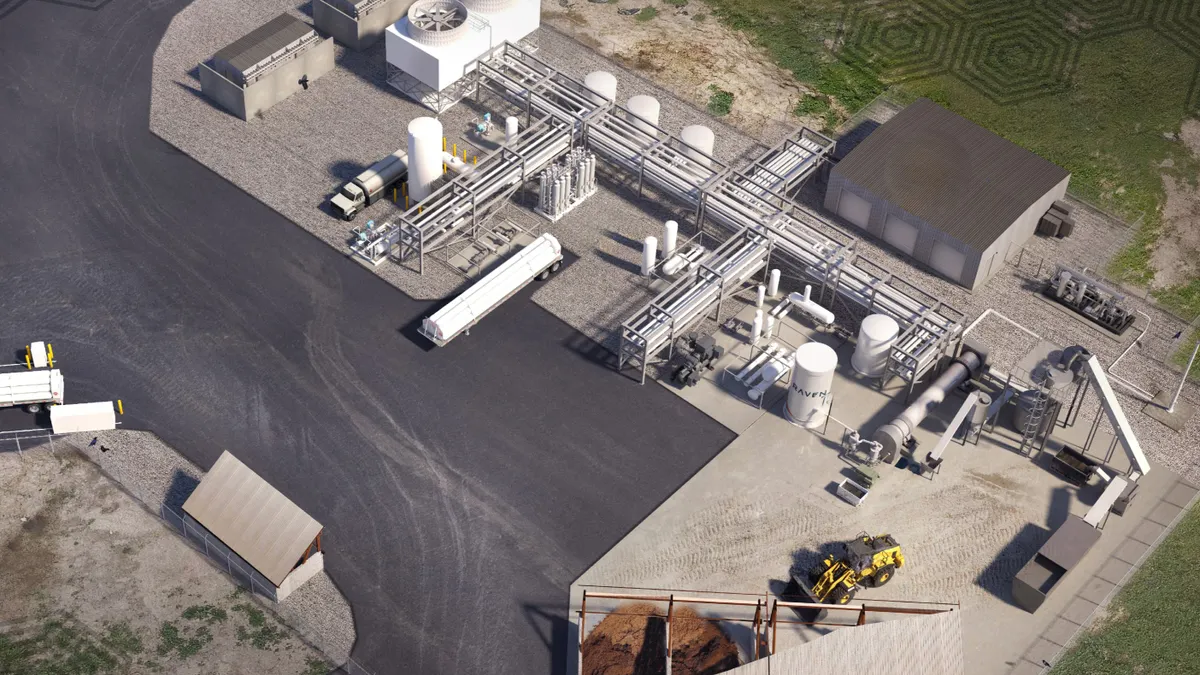The trucking industry anticipates a much different regulatory environment under a second Donald Trump presidency than in the past four years of President Joe Biden’s administration.
Carriers and other stakeholders are closely monitoring — and advocating for — shifts in safety, labor and emissions rules as the Republican president-elect returns to the White House.
“I wouldn't look for this administration to be very forward-leaning on adding a regulatory burden on our industry or many others,” American Trucking Associations President and CEO Chris Spear told Trucking Dive in an interview.
1. ‘Speed limiters are dead’
The ATA and Owner-Operator Independent Drivers Association are divided on the issue of requiring speed limiters, with ATA in favor and OOIDA against.
The rival trucking groups are on the same page, however, about the safety regulation’s prospects for the next four years. The Federal Motor Carrier Safety Administration postponed the rule last year.
“Speed limiters are dead,” OOIDA EVP Lewie Pugh declared in an interview. “I think Trump getting elected will kill speed limiters.”
Spear agreed, saying he would be “very surprised if that were a front-burner issue under this incoming administration.”
2. California won’t enforce ACF emissions rule
California this week withdrew its waiver request to implement its Advanced Clean Fleets rule ahead of Trump taking office. The rule would have required a shift to zero-emission vehicles by 2036.
“The California Trucking Association has consistently stated the Advanced Clean Fleets Rule was unachievable,” the group’s CEO, Eric Sauer, said in a statement. “We look forward to engaging all stakeholders, including CARB and EPA, to continue the trucking industry's efforts to further reduce emissions in a technologically feasible and cost-effective manner that preserves our state and the nation's critical supply chain.”
But Elon Musk’s influence on the upcoming administration could play a role in advancing an electric vehicle agenda, Harbor Trucking Association CEO Matt Schrap said during a SoCal Supply Chain Meetup panel last month.
Noting the policy shifts with changing administrations, the ATA publicly called on OEMs in November to pull out of an agreement with the California Air Resources Board, saying Trump’s election created an opportunity to rechart zero-emissions timelines.
“It's a call for unity,” Spear said last month, adding that CARB and the Biden administration “enabled an accelerated path that was simply unachievable.”
3. ‘Not putting cart before the horse’ on EPA emissions deadlines
Scrapping the EPA’s Phase 3 greenhouse gas rule would require research to justify doing so, which “won’t happen on day one” of the new administration, Spear said in October.
But ATA and the Truckload Carriers Association expect emissions deadlines to be delayed to allow the industry, equipment and infrastructure to reach environmental goals.
“We want to support the environment,” said David Heller, TCA SVP of safety and government affairs, in an interview. “We just have to do so in a strategic way.”
Current environmental requirements have deadlines in advance of equipment coming into mass production, he said.
Emissions rules must avoid “cart-before-the-horse-type scenarios,” and the TCA will work with the EPA to develop realistic standards for the industry, Heller said.
4. Independent contractor, organized labor laws in the spotlight
The trucking industry has expressed support for Trump’s Department of Transportation and EPA nominees. It hasn’t been quite as keen on his selection for secretary of labor, former U.S. Rep. Lori Chavez-DeRemer.
ATA encouraged a thorough vetting of Chavez-DeRemer’s positions on independent contractor law and her sponsorship of the Teamsters-backed Protecting the Right to Organize (PRO) Act.
Spear called the PRO Act a “highly offensive piece of legislation to not just trucking, but everyone in the business community.” But meetings with the Labor Department transition team were productive in allowing ATA to voice members’ priorities and concerns, he said.
“She will certainly be supported by people in the department that are like minded with us, and we'll get the job done,” Spear told Trucking Dive last month.
OOIDA anticipates Trump’s labor department will do away with Biden administration policies, Pugh said.
“I'm hoping they're not as friendly with ATA on that as they were the last time, to put in a bunch of stuff to allow control of owner operators,” he said. “But I guess we shall see.”
5. Autonomous trucking rules could set course for trucking’s future
Trucking interests are closely watching the future of autonomous vehicle rules that could come down from FMCSA in 2025 or the following years.
The agency’s rulemaking will provide clarity about the future for AV trucks, Spear said.
It’s another area where the industry will be examining Musk’s ability to wield his influence on the incoming administration, given Tesla’s investment in autonomous driving.
“Obviously, Elon Musk's role with this president is going to be notable,” the ATA CEO said. “It just can’t be dismissed.”


